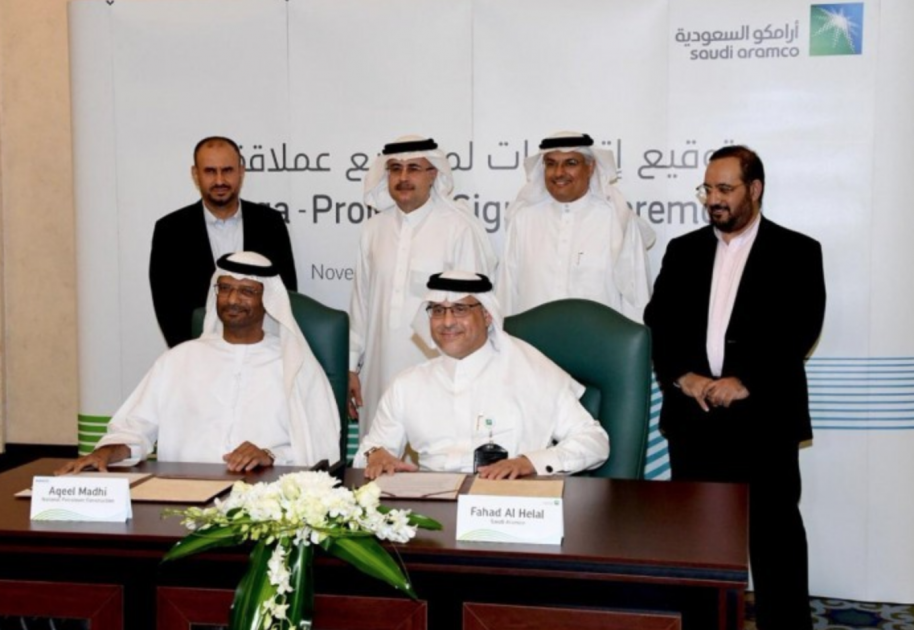
Saudi Aramco signs engineering and construction deals worth $4.5 billion
Saudi Aramco signed agreements on Thursday worth $4.5 billion with firms from Europe, the United States, China and the United Arab Emirates for work on a range of oil and gas development projects, mostly aimed at boosting gas production.
Saudi Aramco is pushing ahead with energy projects that it has listed as a priority to keep the world well supplied with oil while meeting increased domestic demand for gas to fuel industrial growth.
By freeing up more oil for export, gas projects will increase supplies to energy utilities and as feedstock for the petrochemical industry. Aramco has plans to double its gas output to 23 billion standard cubic feet per day.
Signing the deals at a public ceremony in Dhahran, Aramco did not give the value of each agreement.
Among the deals, Spanish engineering company Tecnicas Reunidas (TRE.MC) is to build gas compression plants for the Hawiyah and Haradh fields which will extend plateau production for both fields for the next 20 years, Aramco said.
The project will boost gas production capacity by 1.3 billion standard cubic feet per day.
In related work Italy’s Saipem (SPMI.MI) has won a deal estimated to be worth around $700 million to expand capacity at the Hawiyah gas processing plant, which is due to have a total capacity of 3.86 billion scfd by June 2021, when the new work is due to be completed.
Meanwhile, China Petroleum Pipelines has been contracted to lay 450 kilometres of gas pipelines by early 2019 to take 290 million scfd of gas from the Haradh field to the Hawiyah processing plant.
“This reflects our commitment to introducing new supplies of clean-burning natural gas. These new supplies will help reduce domestic reliance on liquid fuels for power generation, enable increased liquids exports, provide feedstock to petrochemical industries, and reduce carbon emissions,” Amin Nasser, CEO of Aramco said.
OIL CAPACITY UNCHANGED
In a separate project U.S. company Jacobs Engineering (JEC.N) has been awarded preliminary engineering and project management services agreement for a new processing plant to handle 600,000 barrels per day of heavy crude production from the giant Zuluf field in the northeast of the Gulf.
In the same area at Safaniya, Abu Dhabi-based National Petroleum Construction Co (NPCC) and U.S. group McDermott International (MDR.N) were awarded contracts for additional work on the oil field.
But despite these incremental projects the company is not aiming to increase its overall maximum sustainable production capacity, which currently stands at 12 million barrels per day, Nasser said.
“Bringing new increments will sustain the production plateau (at the fields),” he told reporters after the signing ceremony.
“We have other plans (for incremental projects) but they will come in due course.”



























